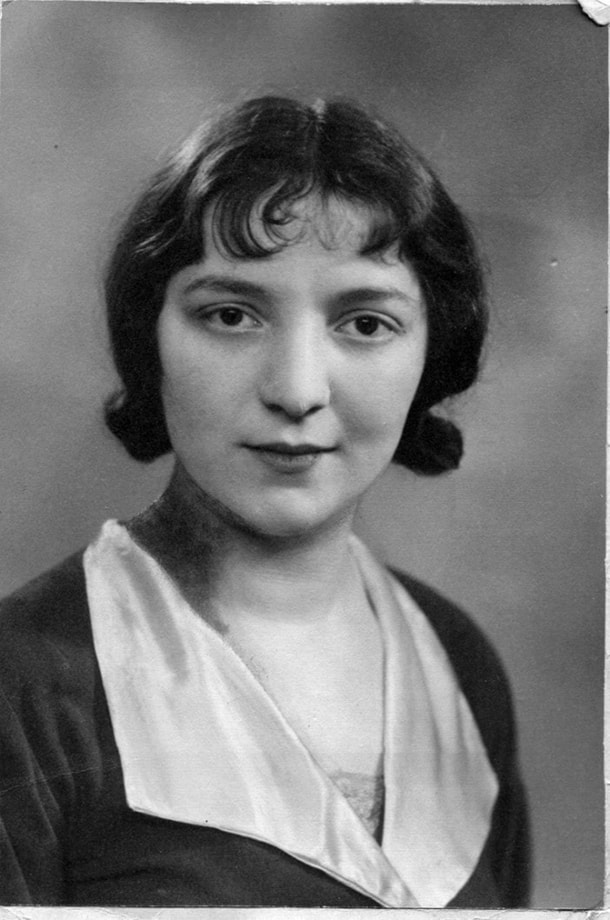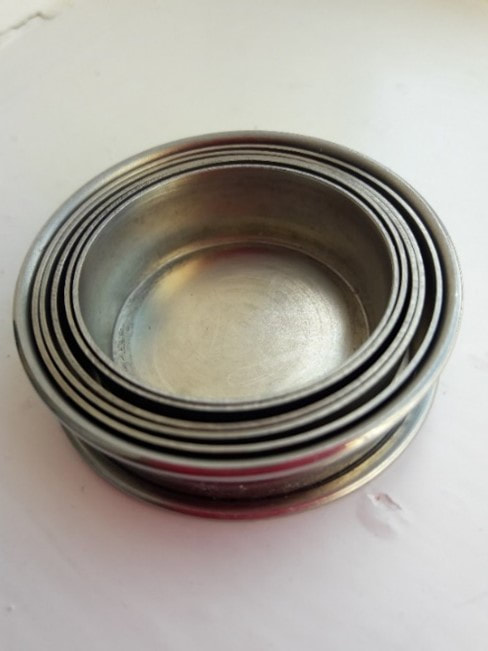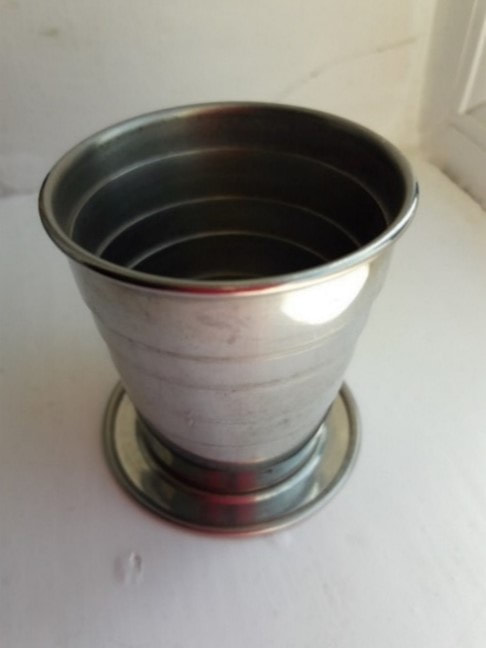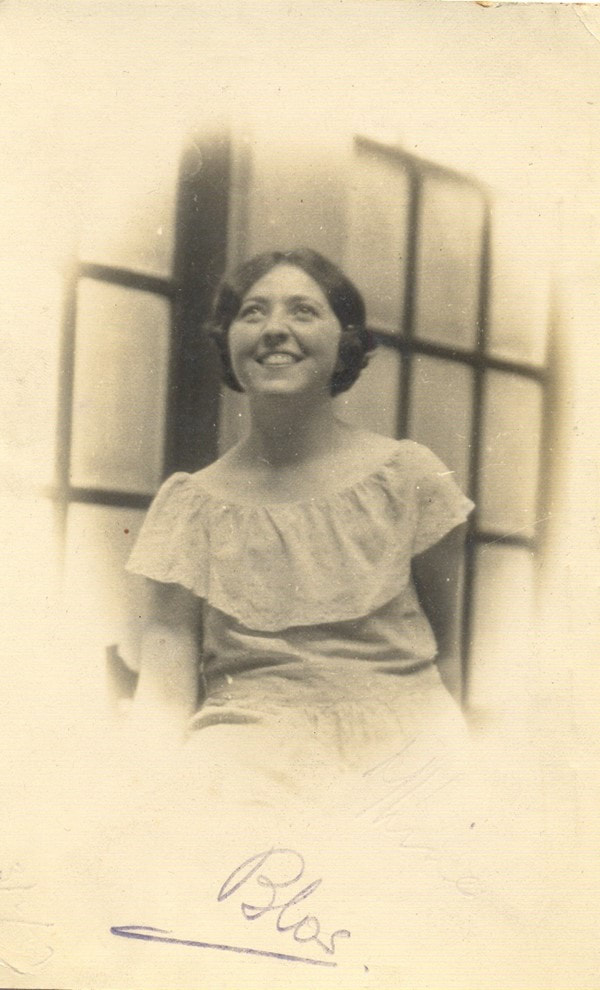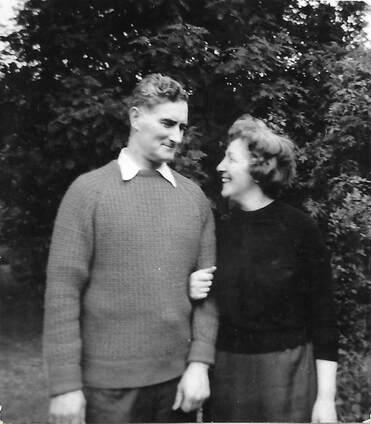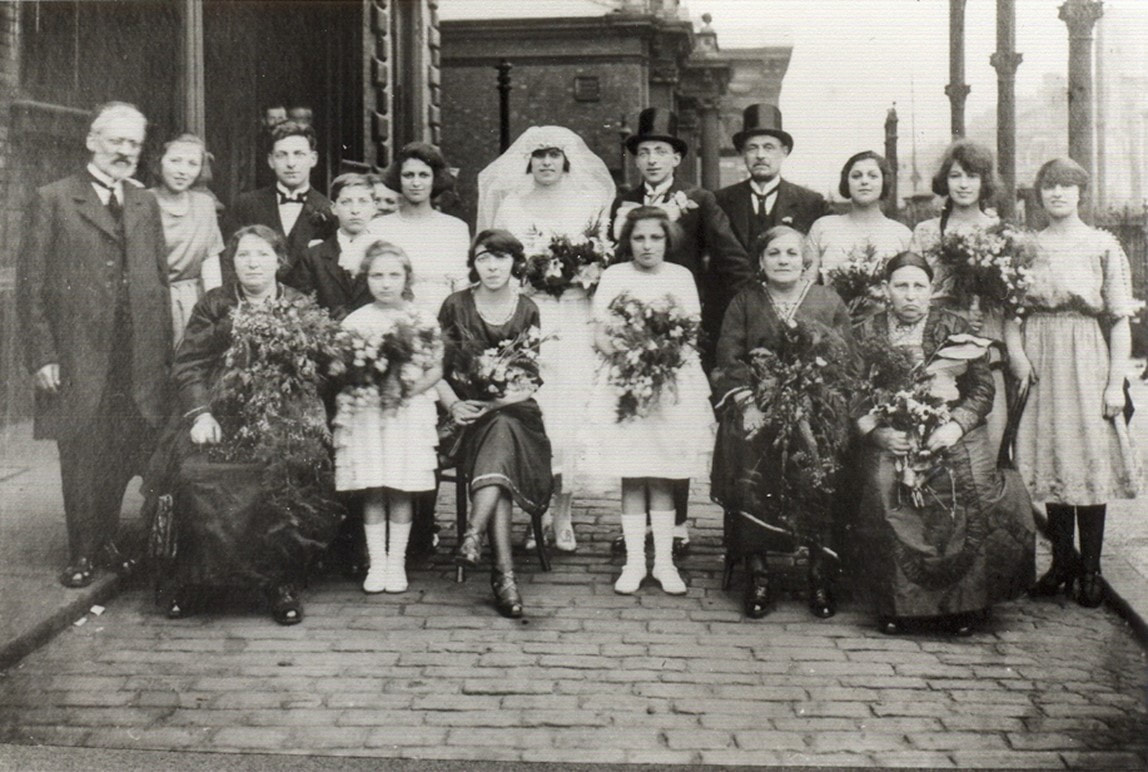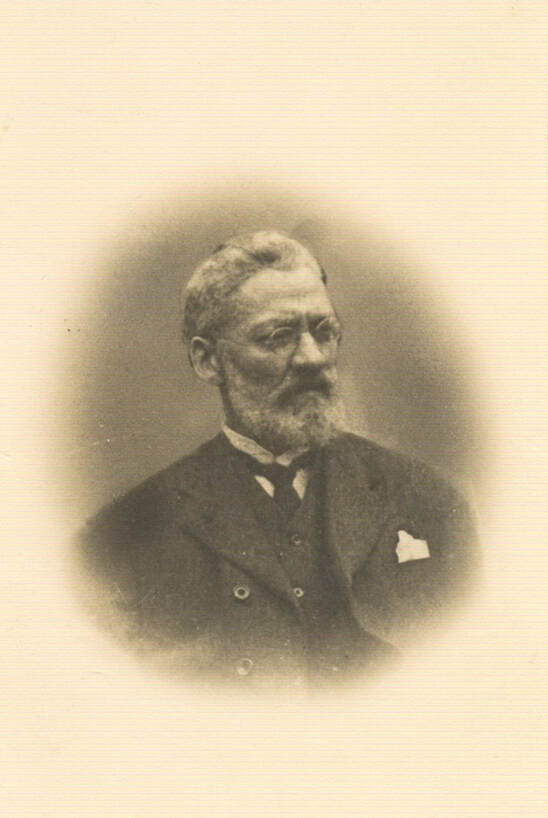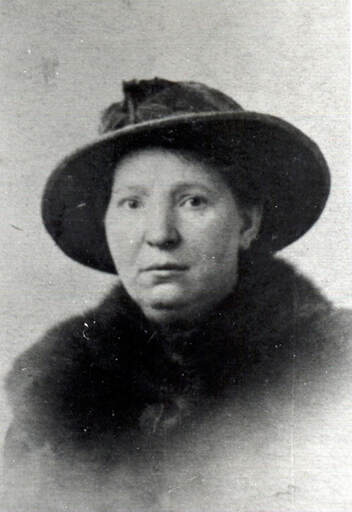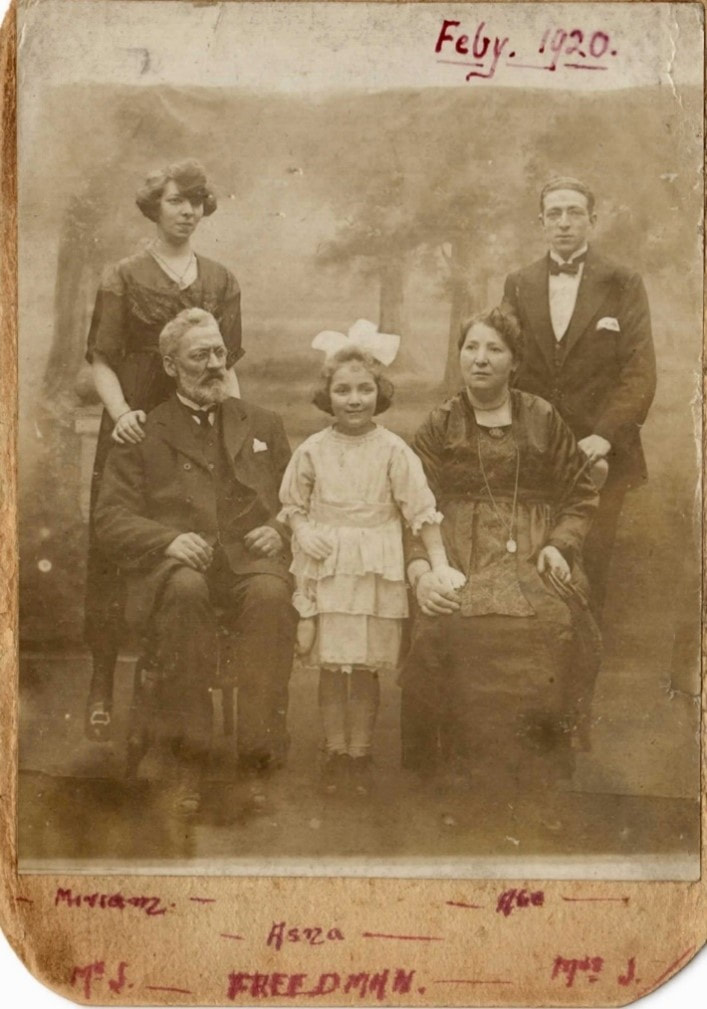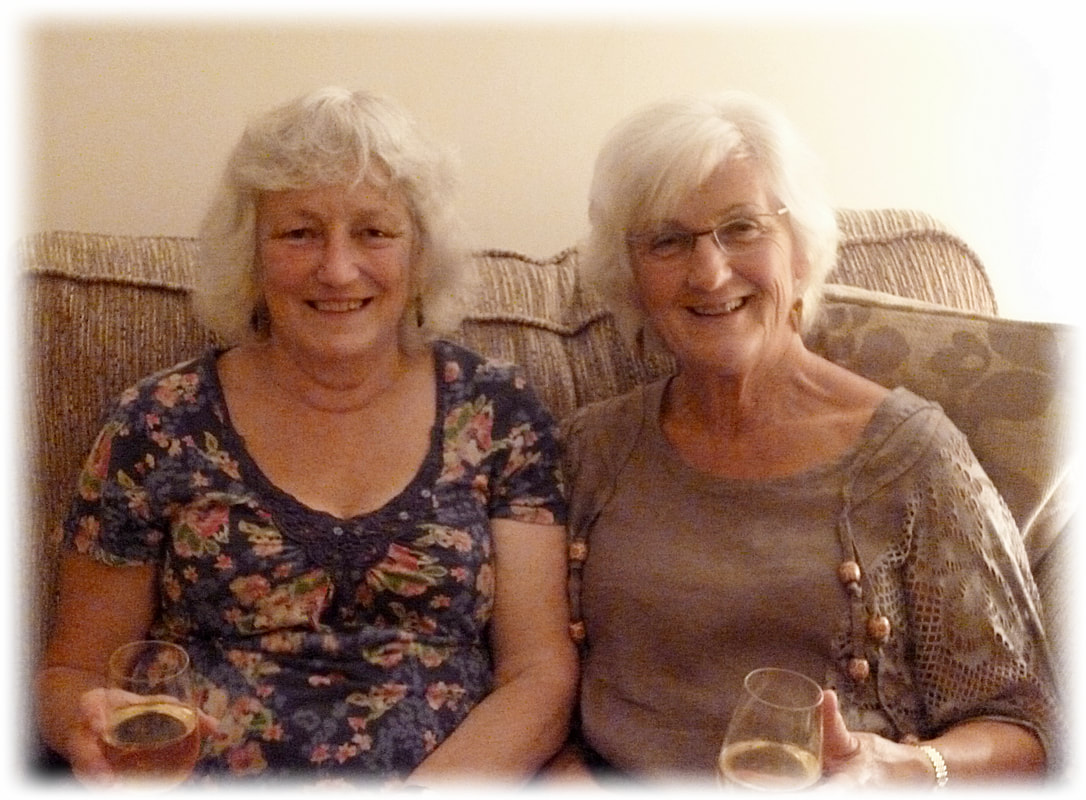|
Just how well do, or did we know our parents, grandparents, or indeed any of our forebears? This month’s blog demonstrates the importance of memoir and recording first-hand experiences, recollections and reflections for future generations. It is written by my second cousin once removed Catherine (Cathy) Aynsley-Smith and is an extract taken from Chapter 8 of her family history book which is headed FREEDMAN AND COFNAS ANCESTRY, “My Mother’s Story”. Cathy, her sister Vivie and I share mutual ancestors in John Smith (1813 – 1881) and Hannah Aynsley (1837 – 1922). They are granddaughters of my great-granduncle George Aynsley-Smith senior (1886 – 1942), (who along with his eldest son Philip, were the compilers of so much of our mutual paternal line family history), and his wife Jeanne Eugenie Mournetas (1878 – 1947). Their father was the second child of three sons and one daughter born to the couple, George Aynsley-Smith junior, (Dick), ‘a nickname he had been given when very young by the family cook due to his love of spotted-dick pudding. Or so the story goes.’ Their mother was Asna Freedman, and this is her story … Extracts from ‘My Mother’s Story’My mother, Asna Freedman, was born to Jewish parents Joseph Freedman and Jane (Janey Myers) Schneider at 57 Lord Street, Cheetham, Manchester on 4th May 1914. (Lord Street was also sometime home of the Jewish Soup Kitchen.) She was the youngest of eight children born to the couple. Her eldest brother was Abraham (Abe) born in 1896. He was followed by a sibling in 1901 who died in 1911 and whose name is not known, then Miriam (1897), Golda (1900) who died aged 17 from the world-wide influenza epidemic. There followed Frank (1903), Sally (1905), David (1909) and lastly Asna (1914). The little I know about her early life and her family comes from the odd snippets of information she told me and from notes that she wrote in later life. Some of her life experiences are described in the ‘diaries’ that she wrote at my request when she was in her eighties. Much of that information was new to me as she rarely mentioned her childhood and in fact, the diaries tell far more than I can. They give an interesting flavour of various parts of her life which I have copied verbatim. Memories of her young days written by Asna in 2001Cathie once suggested I write down incidents in my life as they came to mind & this morning, Sept 18th 2001, I am doing just that. I received a notice in the post this morning from the BHA (British Humanist Assn) about a Xmas holiday in Buxton, so memories came flooding back. Although pumping was quite difficult for small children nevertheless we wouldn't forego this pleasure which I looked forward to daily. Asna’s notes continue: |
| But I remember her telling me on many an occasion how this curtailment of her formal education disappointed her and affected her future life. In the 1920s her sister Sally went to work in London and some years later at the age of nineteen Asna left Manchester to follow her. Due to the poverty she saw in her childhood she developed an interest in politics and through attending political meetings and demonstrations she met my father Dick (George Aynsley-Smith junior). When in her eighties she would often talk about their life together and describe how they ‘had 44 happy years together’ and explain how he came from a Quaker family but that as ‘he too felt the same about religion and politics as I did so that there was no disharmony on these issues, nor on any others that matters, such as the emancipation of women, equality in the home and workplace etc.. I felt very bereft when he died over 16 years ago and still do.’ |
Recollections 20.11.93
All sorts of thoughts pass through my mind in the morning and today, for some unknown reason, my mind went back to my brother, Abe.
Strange. I cannot recollect anything about him before he married in 1921. He was in the Army in the ‘Great War’ (1914-1918) & I seem to remember him in ‘Kahki’ (sic) uniform on his return but no other memories of him at home until I used to visit him & his wife, Emma, at their home & even then only after the birth of their first daughter, Eileen, when I was 8 years old. I remember that Emma made my first gym slip when I started secondary school & seemed bad-tempered at the fittings & ‘ticking me off’ for various reasons.
However, I digress, as I was actually thinking of Abe in a much later period in connection with myself. I went up to M/c to tell him of my intended marriage which he opposed on grounds of religion (as I knew my mother would too) but said if I intended to go ahead – which I did – advised me not to disclose this to my mother & I followed his advice – perhaps I should say his wishes – which I’ve always regretted. I’m sure she would eventually have become reconciled (she had met Dick in London & when I tentatively brought up the question of our marrying, put the same religious objection though she thought ‘he was very nice’ & I am certain that knowing & seeing Cathie, my first baby, would have given her some pleasure in the last few months; she died in Aug ’43 without knowing I was married or of Cathie’s existence. Something I cannot remember without pain. What surprised me was being warmly received by both Abe & Emma when I called some months later with Cathie whilst staying in M/c with Sylvia & Maurice for a few weeks during the heavy bombing. After that first ‘reconciliation’ we remained on amicable terms, but didn’t meet again only communicating by letter & a phone call – before mother’s death.
The diaspora of Jewish people to Europe was to escape from the persecution that beset them continually in Russia and Eastern Europe. But they had a hard time in the countries where they settled with only low paid, mostly manual work, open to them. There were certain periods over the centuries where they did enjoy freedom to pursue their cultural and professional careers as in Spain and Germany and for a short time in England but these periods always passed with further oppression and discrimination and so they fled to whichever country would take them. In the time of the Spanish Inquisition many Jews converted to Christianity otherwise it meant death, unless they could escape and some came to England.
I remember them in Manchester when I was a child as their religious practices were slightly modified allowing them to use transport on Saturday (the Jewish Sabbath) and as many were quite affluent having brought their wealth with them from Spain, we saw them arrive to their special Synagogues in their cars – quite a phenomenon in those days of the early 20s. The Synagogues were called ‘Reform Synagogues’. I remember when a young child going to our own Synagogue and sitting in the Balcony where all the women sat – we had a good view of all the happenings below. At a certain part of the Service the Scrolls – “Torahs” were brought out of their little Ark and carried round, their coverings were of white satin, which I thought was lovely!
I was told by Sally that my parents experienced hard times but always ‘pulled through’. I don’t know a great deal about my parents’ early married life but Jewish immigrants had a hard time and in those days it was difficult for them to work in the professions or follow a career, the only work being available was manual (in the tailoring trade mostly) or in business.
I believe at one time my father ventured into the coal business, having one employee to deliver, but he was no businessman and was a soft touch when families were badly off with no heating in winter and did not insist on payment. This venture didn’t last long! As my father’s attempt in business wasn’t very successful and having been a teacher in the Jewish Community in Russia, he started a small school. By the time I was born he had been teaching Hebrew in a room in the Synagogue which I visited with messages or whatever for my father. Whilst waiting till there was a break I’d sit and watch and listen but not understand apart from a few everyday words. Girls were not included in this education as primarily it was to prepare the boys for their Bar Mitzva at the age of 13. My father was called a Rebbe i.e. teacher & my Grandfather was a Rabbi – the Religious Head (Minister) of the local Jewish community.
The boys came after their English school-day finished and for a full day on a Sunday. My Father also officiated in the local Synagogue and helped my Grandfather in his duties as a Rabbi both were held in high regard by the local Jewish community in our area – Jewish people seemed to have lived in various areas of Manchester by the time I came on the scene.
Author
Susie Douglas
Archives
August 2022
July 2022
June 2022
May 2022
April 2022
March 2022
February 2022
January 2022
December 2021
November 2021
October 2021
September 2021
August 2021
July 2021
June 2021
May 2021
April 2021
March 2021
February 2021
January 2021
December 2020
November 2020
October 2020
September 2020
August 2020
July 2020
June 2020
May 2020
April 2020
March 2020
February 2020
January 2020
December 2019
November 2019
October 2019
September 2019
August 2019
July 2019
June 2019
May 2019
April 2019
March 2019
February 2019
January 2019
December 2018
November 2018
October 2018
September 2018
August 2018
July 2018
June 2018
May 2018
April 2018
March 2018
February 2018
January 2018
December 2017
November 2017
October 2017
September 2017
August 2017
July 2017
June 2017
May 2017
April 2017
March 2017
February 2017
January 2017
December 2016
November 2016
October 2016
September 2016
August 2016
July 2016
June 2016
May 2016
April 2016
March 2016
February 2016
January 2016
December 2015
November 2015
October 2015
September 2015
August 2015
July 2015
June 2015
May 2015
April 2015
March 2015
February 2015
January 2015
December 2014
November 2014
October 2014
September 2014
August 2014
July 2014
June 2014
May 2014
April 2014
March 2014
February 2014
January 2014
December 2013
November 2013
October 2013
September 2013
August 2013
July 2013
June 2013
May 2013
April 2013
March 2013
February 2013
